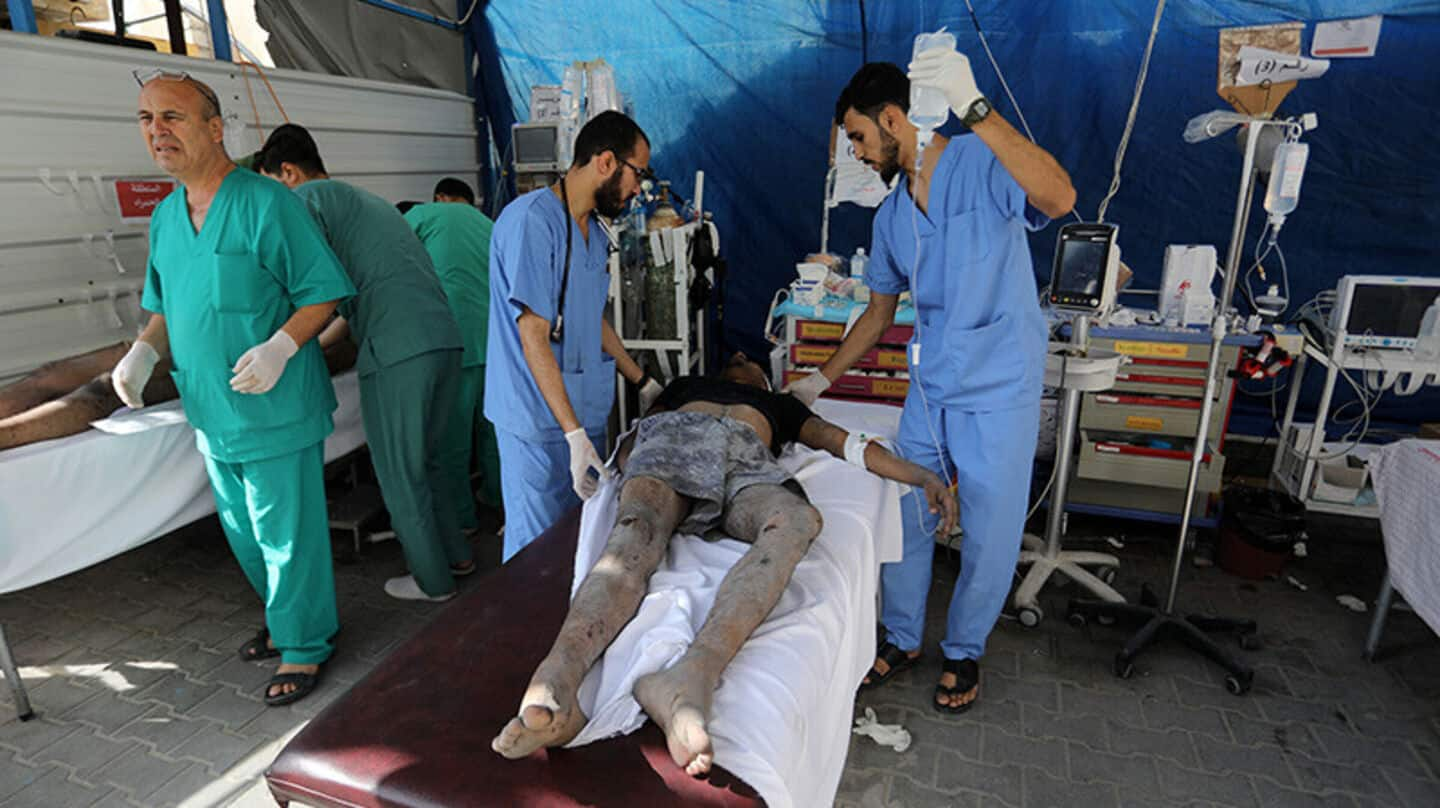
Infectious diseases in Gaza 'spiraling out of control,' warns WHO
What's the story
The World Health Organization (WHO) has raised alarm over the outbreak of infectious diseases in the Gaza Strip. On top of this, only 13 out of 36 hospitals are partially functional, the health agency said. Hanan Balkhy, the regional director for WHO, said that health facilities are facing a "mammoth amount of work," with diseases like meningitis and diarrhea being significant challenges.
Aid access
Ceasefire raises hopes for aid access to Gaza
A ceasefire between Israel and Hamas has raised hopes for increased aid access to Gaza. However, Balkhy warned that the challenges are "unimaginable." She called for more fuel, food, medical equipment, medications, and personnel to be allowed into the territory. The WHO data shows only eight partially functional health facilities in Gaza City, the main urban hub of the territory.
Hospital conditions
Hospitals face acute shortage of medical personnel
The remaining hospitals in Gaza are facing acute shortages of medical personnel. These staff members themselves have faced famine and the challenges of Israel's offensive, which has killed nearly 68,000 people according to the Hamas-run territory's health ministry. Balkhy said repairing Gaza's devastated hospitals involves deciding between rehabilitation or complete reconstruction. The UN data shows over 800 attacks on Gaza's health facilities since Hamas's October 7, 2023 attack on Israel.
Healthcare collapse
Healthcare system on verge of collapse
Balkhy noted that there is very little left of the healthcare system in Gaza. Many children born in the last two years have likely received no vaccinations. The UN estimates nearly 42,000 people have life-changing injuries due to the conflict. Mental health needs have also more than doubled among over two million Palestinians under bombardment for two years, according to WHO.
Access plea
Patients barred from accessing medical care in West Bank, Jerusalem
Balkhy also called for patients to access the West Bank and Jerusalem "so that they can get the care that is available right close by." However, Israel has restricted permits for Palestinians to leave Gaza during the conflict, making medical evacuations nearly impossible. "We're really hoping that the peace is fully sustained, so that we can start," Balkhy said.